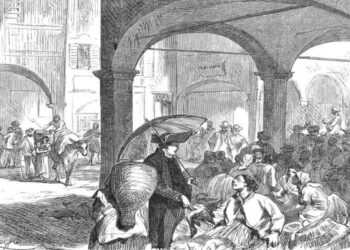Federal holidays in the United States are designated by the government to commemorate significant events, honor notable figures, or celebrate cultural traditions. These holidays can influence the operation of businesses, government offices, and schools, leading to closures and altered schedules. Many of these holidays fall on Mondays, a tradition attributed to the Uniform Monday Holiday Act. This act passed in 1968, aimed to provide workers with more three-day weekends, enhancing leisure time and family gatherings.
Is Monday a Federal Holiday in USA?
The Uniform Monday Holiday Act, a significant piece of legislation passed in 1968, plays a pivotal role in scheduling federal holidays in the United States. This act, aiming to provide workers with more three-day weekends, led to the designation of Mondays as federal holidays. Some notable Mondays include Martin Luther King Jr. Day, Presidents’ Day, Memorial Day, Labor Day, and Columbus Day. These holidays, honoring significant historical figures, events, or achievements, have a widespread impact on businesses, government offices, and schools nationwide.
Federal Holidays On Mondays
Federal holidays in the USA often fall on Mondays, thanks to the Uniform Monday Holiday Act. This legislation was designed to provide American workers additional long weekends, promoting family time and leisure activities. Here, we will explore which Mondays are federal holidays and their significance.
The Uniform Monday Holiday Act was established to shift the celebration of several holidays to Mondays, thus ensuring more extended weekends for workers. This shift helps reduce employee absenteeism and increase productivity post-holiday.
Several federal holidays are observed on Mondays. For instance, Martin Luther King Jr. Day is celebrated on the third Monday of January to honor the civil rights leader’s contributions. Presidents’ Day, initially honoring George Washington’s birthday, is observed on the third Monday of February, now celebrating all U.S. presidents.
Memorial Day, the remembrance of military personnel who died in service, falls on the last Monday of May. Labor Day, celebrating workers’ contributions and achievements is observed on the first Monday of September. Lastly, Columbus Day, commemorating Christopher Columbus’s landing in the Americas, is celebrated on the second Monday of October.
The Purpose And Impact Of Monday Federal Holidays
Enhancing Work-Life Balance: The shift to Monday holidays significantly improves work-life balance for American workers. These extended weekends offer more time for relaxation, travel, and family activities, contributing to overall well-being and job satisfaction.
Economic Implications: Federal holidays on Mondays have notable economic implications. Retail businesses often see a surge in sales due to holiday promotions and sales events, while travel and hospitality industries benefit from increased vacation planning and tourism.
Cultural Significance: Each Monday’s federal holiday is culturally important. For example, Martin Luther King Jr. Day is a time for educational events and community service, highlighting the ongoing struggle for civil rights and equality. Memorial Day ceremonies and parades honor fallen soldiers, fostering a sense of national pride and remembrance.
Government and Business Operations: Federal holidays affect the operations of government offices, banks, and schools, leading to closures and modified schedules. This consistency allows for predictable planning for both employees and the public.
Public Perception and Traditions: Public perception of Monday federal holidays is generally positive, with many Americans appreciating the additional time off. Traditions associated with these holidays, such as parades, community events, and family gatherings, enrich the nation’s cultural fabric.
Detailed Examination of Specific Monday Federal Holidays
Martin Luther King Jr. Day
Martin Luther King Jr. Day is celebrated on the third Monday of January, honoring the legacy of Dr. Martin Luther King Jr., a pivotal figure in the American civil rights movement. This holiday commemorates his contributions to the struggle for racial equality and justice through nonviolent resistance. On this day, various activities and events occur nationwide to reflect on his achievements and the ongoing fight for civil rights. Schools and communities often hold educational programs, discussions, and service projects, emphasizing King’s message of peace, equality, and the importance of social justice. His famous “I Have a Dream” speech and leadership in events like the Montgomery Bus Boycott and the March on Washington are highlighted to inspire continued efforts toward equality and justice for all.
Presidents’ Day
Observed on the third Monday of February, Presidents’ Day initially honored the birthday of George Washington, the first President of the United States. Over time, it evolved to recognize the contributions of all U.S. presidents. This holiday is marked by various public ceremonies and educational activities that celebrate presidential achievements and the history of the American presidency. Schools often use this day to teach students about the lives and legacies of presidents, focusing on their roles in shaping the nation. Retailers also use the long weekend to offer significant sales and promotions, boosting economic activity. Presidents’ Day serves as a reminder of the leadership and vision of the country’s past leaders, fostering a sense of national pride and historical awareness.
Memorial Day
Memorial Day, celebrated on the last Monday of May, honors the men and women who died while serving in the U.S. military. It originated after the Civil War to commemorate fallen soldiers and has since expanded to honor all American military personnel who sacrificed their lives. Memorial Day is marked by various traditions, including visiting cemeteries and memorials, attending parades, and participating in ceremonies. Many Americans observe silence at 3:00 PM local time to remember and honor those who died in service. The day also serves as the unofficial start of summer, with families often gathering for barbecues and outdoor activities. Memorial Day emphasizes the importance of remembering and honoring the sacrifices of military personnel, promoting a sense of national gratitude and patriotism.
Labor Day
Labor Day, observed on the first Monday of September, celebrates the contributions and achievements of American workers. The holiday originated in the late 19th century during the labor movement’s fight for workers’ rights, fair wages, and reasonable working hours. Today, it is a time to recognize the vital role of workers in building and sustaining the nation’s economy. Labor Day is celebrated with parades, picnics, and various public events, often featuring speeches by labor leaders and politicians. It is also seen as the unofficial end of summer, with many families taking advantage of the long weekend for travel and leisure activities. The holiday underscores the importance of labor unions and the progress made in improving working conditions, highlighting the ongoing efforts to protect workers’ rights.
Columbus Day
Columbus Day, celebrated on the second Monday of October, commemorates Christopher Columbus’s landing in the Americas on October 12, 1492. This holiday recognizes Columbus’s voyages and their significant impact on world history. It is marked by various celebrations, including parades, educational programs, and discussions on Columbus’s explorations’ historical and cultural impact. In recent years, Columbus Day has also sparked debates and discussions about the broader implications of European colonization on indigenous populations. Some communities observe Indigenous Peoples’ Day instead, honoring the history and cultures of Native American peoples. Columbus Day serves as an opportunity to reflect on the complex history of exploration and colonization, fostering a deeper understanding of the diverse cultural heritage of the Americas.
Conclusion
Monday federal holidays in the USA enhance work-life balance, boost the economy, and foster cultural appreciation. The Uniform Monday Holiday Act has provided more extended weekends, benefiting employees and businesses. Understanding the significance of these holidays helps us appreciate their impact on American society.
FAQ’s
- What holidays are federal holidays in the USA?
- The USA has ten federal holidays: New Year’s Day, Martin Luther King Jr. Day, Presidents’ Day, Memorial Day, Independence Day, Labor Day, Columbus Day, Veterans Day, Thanksgiving Day, and Christmas Day.
- Why are some federal holidays on Mondays?
- Some federal holidays are observed on Mondays due to the Uniform Monday Holiday Act. This act was designed to provide workers with more three-day weekends, improve work-life balance, and promote leisure time and family gatherings.
- Is every Monday a federal holiday in the USA?
- No, not every Monday is a federal holiday. However, several federal holidays, such as Martin Luther King Jr. Day, Presidents’ Day, Memorial Day, Labor Day, and Columbus Day are observed on Mondays.







